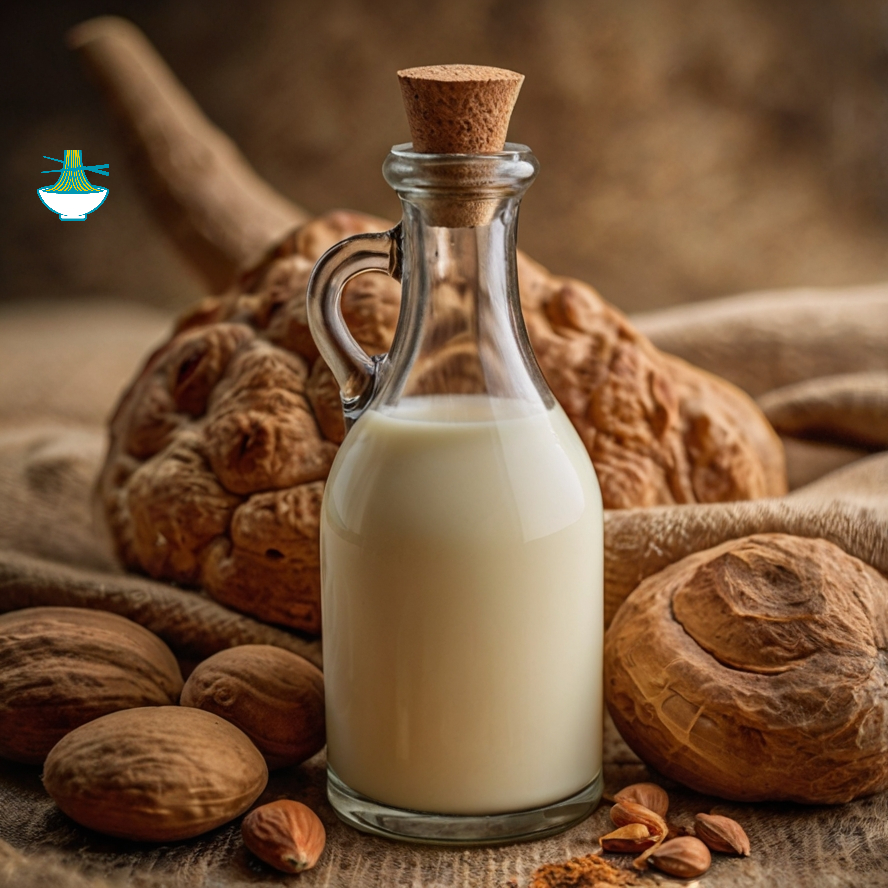Indulge in the ancient Kazakh tradition with Shubat, a unique beverage crafted from fermented camel milk. Revered for its rich probiotic content and numerous health benefits, Shubat offers a distinctively tangy flavor and creamy texture. Explore the rich heritage of Kazakhstan through this wholesome drink, renowned for its cultural significance and nourishing properties.
Here's a basic recipe for making Shubat, the traditional Kazakh fermented camel milk drink:
Ingredients:
- 1 liter fresh camel milk
- 1/4 cup natural yogurt (as a starter culture)
Instructions:
1- Start by heating the camel milk to around 85-90°F (30-32°C). You can do this on the stove, but be careful not to let it boil.
2- Once the milk is at the right temperature, stir in the yogurt to act as a starter culture.
3- Pour the milk mixture into a clean, sterilized glass jar, leaving some space at the top for expansion.
4- Cover the jar with a clean cloth or paper towel and secure it with a rubber band or string. This allows the mixture to breathe while keeping out dust and insects.
5- Place the jar in a warm, dark place, ideally around 85°F (30°C), for 24-48 hours. The fermentation time can vary based on the ambient temperature and desired tanginess.
6- Check the Shubat periodically. It should thicken slightly and develop a slightly sour taste as it ferments.
7- Once the Shubat reaches your desired level of fermentation, transfer it to the refrigerator to chill before serving.
8- Serve the Shubat cold, and enjoy the unique taste and health benefits of this traditional Kazakh drink!
Note: The fermentation process can be influenced by various factors, so it may take some experimentation to achieve the taste you prefer.
Nutritional Values:
Here are the approximate nutritional values for the main ingredients used in Shubat:
1 Liter Fresh Camel Milk:
- Calories: 600 kcal
- Fat: 30 g
- Carbohydrates: 30 g
- Protein: 30 g
Benefits:
- Protein: High-quality protein essential for muscle growth and repair.
- Fat: Contains beneficial fatty acids, including unsaturated fats.
- Calcium: Good source of calcium for bone health.
- Vitamins and Minerals: Rich in vitamins B12, C, D, and several minerals such as iron and zinc.
- Digestibility: Often easier to digest than cow's milk due to smaller fat globules and different protein structures.
1/4 Cup Natural Yogurt (as a Starter Culture):
- Calories: 30 kcal
- Fat: 1.5 g
- Carbohydrates: 4 g
- Protein: 2 g
Benefits:
- Probiotics: Contains live cultures beneficial for gut health and digestion.
- Calcium: Contributes to daily calcium intake.
- Protein: Provides additional protein for muscle health.
- Vitamins: Often contains B vitamins and other nutrients.
These values can vary based on the specific brand and type of product used.


Comments